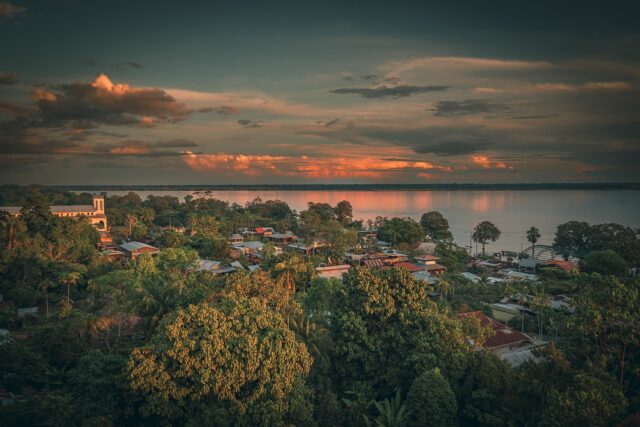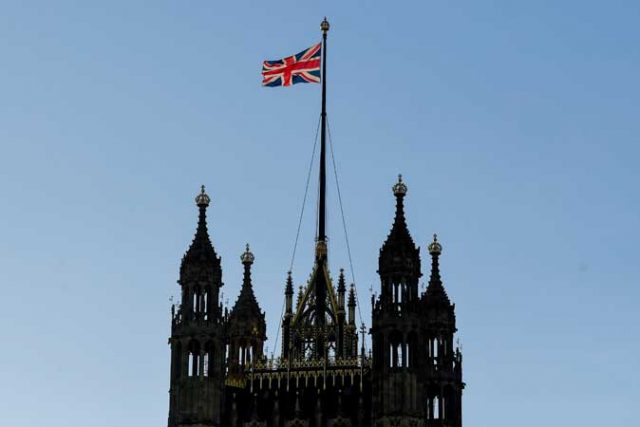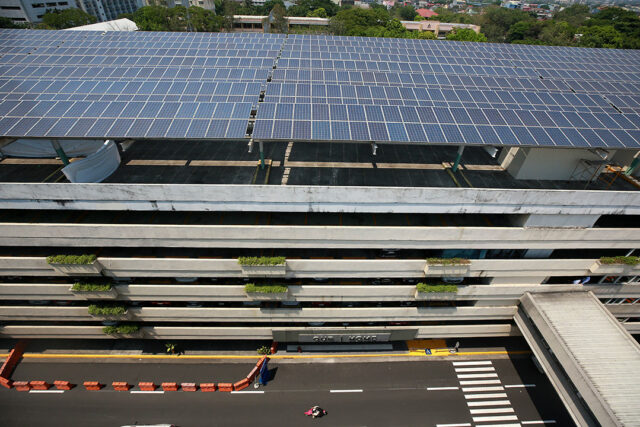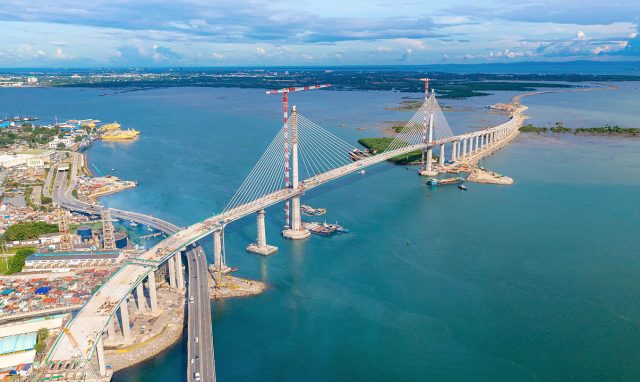By Revin Mikhael D. Ochave, Reporter
THE ARREST of former Philippine President Rodrigo R. Duterte for crimes against humanity may “disturb” financial markets as it reflects increasing political instability in the country, analysts said.
GlobalSource Country Analyst Diwa C. Guinigundo said Mr. Duterte’s arrest may affect financial markets in the short term.
“Short run, maybe the financial markets will be disturbed. It can be upset,” he told reporters on the sidelines of the Management Association of the Philippines (MAP) event on Wednesday. “But over time, over time, people will realize that something can be done here in the Philippines. We don’t tolerate this kind of offenses.”
Mr. Duterte was flown to The Hague on Tuesday, just hours after he was arrested over a warrant issued by the International Criminal Court (ICC). The former president is facing a case involving alleged crimes against humanity over his anti-drugs crackdown that killed thousands.
“There’s an effect because it is seen as political instability. This might scare off foreign investors,” DragonFi Securities, Inc. Equity Research Analyst Jarrod Leighton M. Tin said in a Viber message.
On Wednesday, the bellwether Philippine Stock Exchange index (PSEi) slipped by 0.18% or 11.29 points to 6,195.26. It traded as low as 6,123.88 intraday before ending higher.
Unicapital Securities, Inc. Research Head Wendy B. Estacio-Cruz said in a Viber message there could be increased market volatility as the arrest of a former head of state “is an unprecedented event in the Philippines, introducing a high degree of political uncertainty.”
“The political instability can erode investor confidence, leading to reduced foreign and domestic investments. This may translate to slow economic growth, as seen historically. This may also result in an unpredictable business environment, which can deter investment and negatively impact corporate profitability,” she said.
Mr. Duterte, who was president from 2016 to 2022, could become the first Asian former head of state to be tried at the ICC.
AP Securities, Inc. Research Head Alfred Benjamin R. Garcia said the current market performance is just a knee-jerk reaction to these events.
“But of course we’ll have to see how this situation will develop over the coming weeks,” he said in a Viber message.
CONCERN
BDO Capital & Investment Corp. President Eduardo V. Francisco told reporters that the current political situation is a cause of concern for investors.
“The investment community and the investors, generally, like stability and peace. Ideally, we wish that all this fighting between the Marcoses and the Dutertes becomes quiet because it’s really causing concerns, even for foreign investors,” he said.
Regina Capital Development Corp. Equity Analyst Alexandra G. Yatco said the development is a possible deterrent for investors.
“There’s political tension and instability that was triggered by Mr. Duterte’s arrest as well as recession fears by Trump’s tariff policies. This is a potential deterrent for investors to pour their money into the Philippines as investors look for more stable environments,” she said during the Money Talks with Cathy Yang program on One News on Wednesday.
In his presentation during the MAP meeting, Mr. Guinigundo cited the disunity of the “UniTeam” alliance — between the Marcos and Duterte families — as one of the domestic risks facing the economy. He also cited food security, and fiscal and debt sustainability as other risks.
“If (the arrest) attracts a big crowd, this is something that would upset and disturb the financial markets… We believe that if this continues, this is something that we really have to be prepared for,” Mr. Guinigundo said.
Aries A. Arugay, chair at the Department of Political Science at the University of the Philippines Diliman, said that Mr. Duterte’s arrest is on track to becoming a “key electoral issue.”
“The ICC arrest could possibly heighten political risk a little bit. We still have yet to see whether the repercussions will spill over to political instability, but I think so far, the government in power right now seem to be monitoring developments and will try to reduce and mitigate political risk as much as it can,” he said during the Money Talks with Cathy Yang program on One News on Wednesday.
The midterm elections will be held on May 12.
‘LIFE GOES ON’
Meanwhile, the Philippine Chamber of Commerce and Industry (PCCI) Chairman George T. Barcelon said it may be “too early to tell” if Mr. Duterte’s arrest will affect business sentiment.
“Life goes on. In our case, on the business side, we are very actively trying to attract (business) missions from other countries so that they invest in us, and we export our Filipino products,” he told reporters on Wednesday.
He said that the Corporate Recovery and Tax Incentives for Enterprises to Maximize Opportunities for Reinvigorating the Economy (CREATE MORE) Act will help the Philippines attract more foreign investments despite these disruptions.
“Business will continue. Business will always look at where the country can give you an advantage. I think with CREATE MORE, that gives us broader leeway in attracting foreign investments,” said Mr. Barcelon.
“We just hope that there will be less disruptions and we hope that with what has transpired, in the mind of the business sector, we’re still open about being optimistic,” he added.
Sought for comment on the issue, Trade Secretary Cristina A. Roque said that the focus right now of the Department of Trade and Industry is to attract foreign investments.
“The focus of the department is really to actually attract foreign trade and investments and to really grow the industries and to really grow the economy. So that is where we are focused right now,” she added.
Meanwhile, Philippine Dealing and Exchange Corp. (PDEx) President and Chief Executive Officer Antonino A. Nakpil told reporters in a separate interview that bond listings are expected to continue amid recent political instability.
“For the old regulars, they’ve been through the cycles. Our untold story is actually the power of the domestic investors. They’ve been powering a lot. I’d rather have domestic investors (than foreign investors) because they don’t run away,” he said.
Year-to-date, PDEx has logged P65.7 billion worth of bonds from five listings, Mr. Nakpil said.
He added that two more listings are expected in March, consisting of the P10-billion bond offer of listed real estate company DoubleDragon Corp. and the P5-billion sustainability-linked bonds of property developer Cebu Landmasters, Inc.
PDEx is expecting to have up to P600 billion in bond listings this year, higher than P360 billion last year. — with Aubrey Rose A. Inosante and Justine Irish D. Tabile












